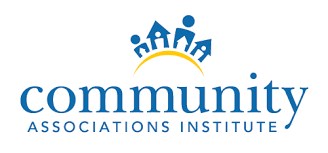
Last week, Thomas M. Skiba, CAE, CAI’s chief executive officer, and Ursula K. Burgess, Esq., president of CAI’s Board of Trustees, released a statement calling for equality and justice. As communities continue to navigate the current crisis, CAI shares an unwavering support of the Fair Housing Act of 1968 and advocates for our public policy establishing a simple process for community association boards to amend covenants to remove discriminatory, illegal language.
Support of the Fair Housing Act (FHA)
This law protects people from discrimination when they are renting, buying, or securing financing for a home. Every citizen has the right to fair housing options.
FHA made it illegal to refuse to sell or rent to any person because of their race, color, religion, sex, or national origin. In 1988, disability and familial status were added to protected classes of discrimination.
Fair housing is woven into the fabric of community associations. Since 1968, the number of community associations has grown from 10,000 to nearly 380,000. From cities to suburbs, coast to coast, community associations provide housing to people of all races, ages, income levels, religions, sex, and national origin. Residents in these communities come together, embrace diversity, and create a culture to be proud of. CAI supports the rich history of social justice defined in the FHA.
Removing Discriminatory Covenants
Earlier this year, the CAI Board of Trustees adopted a public policy, its Amendment Process to Remove Discriminatory Restrictive Covenants, that allows a community association board to remove antiquated and unenforceable discriminatory restrictions contained in covenants without a vote of owners.
Restrictive covenants, often contained within a deed, impose a restriction on the use of land. Typically, a community association must get a majority vote of owners to amend their particular governing documents. Although the FHA made racially restrictive covenants unenforceable in a court of law, they are still visible within deeds that predate the law. CAI advocates for the adoption of state legislation that provides for a simplified process to allow for the removal of restrictions deemed to be discriminatory under FHA or state anti-discrimination laws.
CAI is hopeful that states without a simplified process will use this as guidance to create and pass legislation that easily, efficiently, and inexpensively allows a community association to remove these discriminatory covenants from their documents.
In closing, I rely on the words of Skiba and Burgess in their statement for equality and justice: “To members of the CAI staff, to CAI members, and to Americans everywhere who are afraid in your daily life for yourselves, your family, and your children because of the color of your skin, CAI stands with you. We will do our part to help all achieve the promise of America: life, liberty, and the pursuit of happiness. And we will do our part to ensure our communities realize their purpose of togetherness, neighborliness, and belonging.”
Dawn Baumann is CAI’s Sr. Vice President of Government & Public Affairs.






Leave a Comment